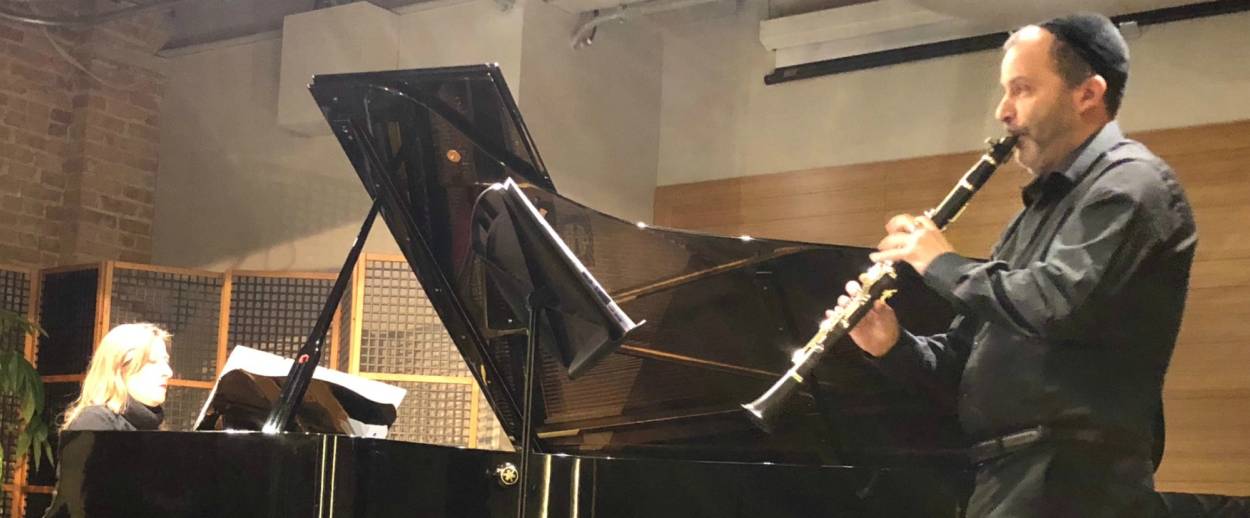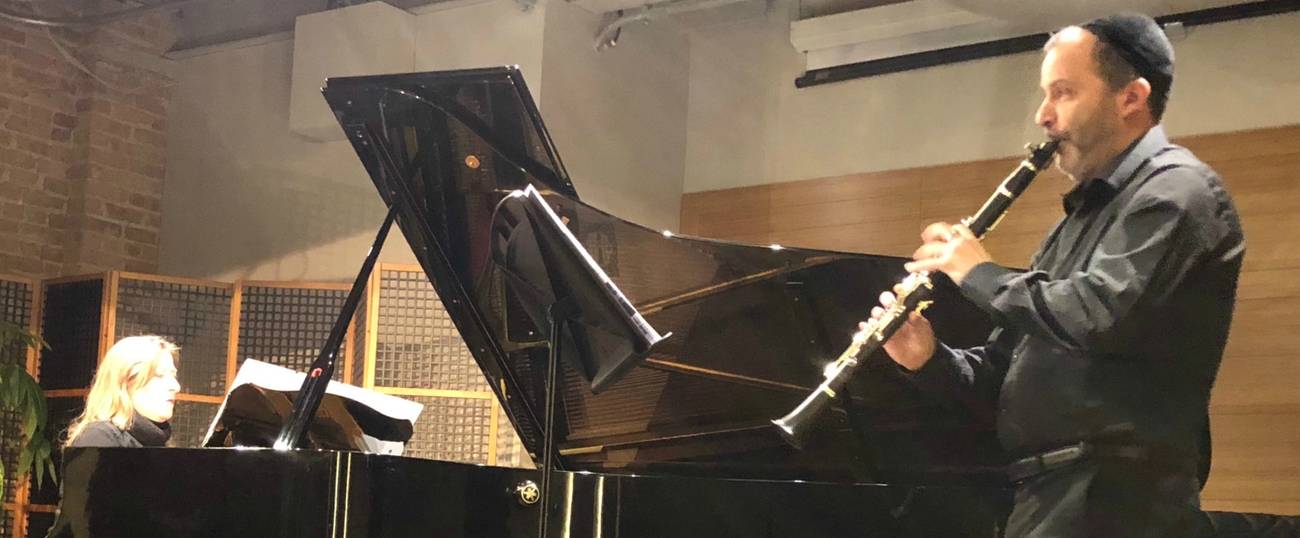Musical Festival Resurrects Works by Jewish Composers Murdered in the Holocaust
The Viktor Ullmann Festival helps previously unheard works find new audiences




In mid-September 1938, Benito Mussolini stood on an immense platform in the port city of Trieste’s Piazza dell’ Unita d’Italia and delivered a radio broadcast to the Italian people.
Far below him, thousands had packed into the square. As he delivered a screaming proclamation, his outstretched arm fell back across his body while, head raised high, Mussolini drank in a deafening roar of approval.
Two months earlier, a manifesto had been published which declared that “Jews do not belong to the Italian race. Generally speaking, no trace is left of those Semites that, over the centuries, have landed on the scared soil of our fatherland.”
In Wiley Feinstein’s book The Civilization of the Holocaust in Italy: Poets, Artists, Saints, Anti Semites, an eye witness, Ruth Isaak, remembered that Mussolini’s Trieste speech had been greatly anticipated as it was designed to “clarify the Italian attitude towards the recent race laws.”
As she watched, from her vantage point in the Rex Café, initial disorientation turned to fear.
“The radio spread his voice all the way towards Sicily and, in the roads and squares nearby, the loudspeakers thundered,” Isaak said. “It seemed that from the first sentences pronounced on the subject of Jews that [Mussolini] did not want to be too heavy-handed. I thought there was hope. But, immediately afterwards, he added that the ‘Jewish international was an irreconcilable enemy of fascism’ and, at this point, the sounds of approval were transformed into a thunder that seemed endless [and] seemed to draw nearer and nearer to us. The end of the speech was ominous, a full-blown threat. Four months later, at the Rex, the sign appeared: ‘In this establishment no Jews are welcome.’”
Nearly 80 years later, on January 29, 2018, an audience of around 40 people sat in a square room on the second floor of the PianoForte Studios in Chicago. On a foot-high stage, two musicians from the Viktor Ullmann Festival in Trieste, Davide Casali and Elisa Frausin, gently translated the notes of Italian Jewish composer Dr. Alberto Gentili’s Serenatella op. 10 via the clarinet and piano respectively.
Mussolini’s thunder had long since been silenced and, instead of hatred, Gentili’s music was steeped in emotion and evoked images of a man yelling to the sky before hunching over in despair—crying out just to be heard and embraced.
Gentili was a teacher at Turin University in 1927 when he came upon a pile of frail, dusty manuscripts belonging to one Antonio Vivaldi. His tireless efforts to keep the manuscripts safe in the Turin library led to a 20th Century reclamation of Vivaldi’s work but, because Gentili was Jewish, for decades he was never credited for his discovery.
His voice and that of a myriad of composers whose work was forged under tyranny, in concentration camps or in exile, might have remained silent were it not for Casali.
Ironically, it was Casali’s own discovery, four years ago, of music long buried in a desk at the home of the parents of an Jewish Italian composer who was among those Mussolini declared as an enemy to his racial vision which led to the birth of the Viktor Ullmann Festival—an annual program dedicated to preserving and playing once-hidden Concentrationary Music “composed by detainees in concentration camps and ghettos.”
Initially not understanding what he had found, Casali carefully studied it and so uncovered a history that led him down a forgotten path.
“I began to find other composers like Renzo Massarani and Marc Lavry,” he recalled.
Lavry was able to escape the Nazis and became one of Israel’s most prolific composers. Casali added that, after an acquaintance gave him some of Lavry’s work, he engaged an orchestra and for a concert in a Trieste synagogue.
The subsequent festival took its name from a Czech-born Jewish composer who kept working throughout the two years he spent at Theresienstadt Concentration Camp before he was transported to Auschwitz in 1944 and was murdered in its gas chambers. One of the few Ullmann pieces which survived Theresienstadt was an opera which didn’t see the light of performance until the mid-Seventies.
The Viktor Ullmann Festival opened in Trieste in 2014 with Ullmann’s work alongside Leone Sinigaglia (who died of a heart attack in 1944 when the Nazis arrested him), Guido Alberto Fano, and others whose work had been silenced by malice.
Casali’s determination to find every last surviving piece is relentless, and the curation of each of festival’s seasons is often dependent upon his ongoing discoveries. Many of them have often never before been heard.
“At the start, people thought concentration camp music would just leave them sad,” Casali said. “But, when they came, they realized it was very good.”
Their audience has since exponentially grown to the point where it too could fill the Piazza dell’ Unita d’Italia.
The program in Chicago—hosted by the Consulate General of Italy and it’s the Istituto Italiano di Cultura office in partnership with the Pianoforte Foundation, the Illinois Holocaust Museum and Education Center, and the American Jewish Committee (AJC) Chicago—was so much more than an annual reflection of a law passed in 2000 instituting Holocaust Remembrance Day in Italy.
“Usually we host the screening of a movie,” Istituto Italiano di Cultura Alberta Lai explained. “But, this year, we came across the festival and we wanted to mark this important occasion with music. It tells a story that brings you back to those days and allows you to reflect on the fate of those composers who died and added an extra, artistic, loss to our country.”
One of the composers Casali and Frausin featured was Italian-Jew Aldo Finzi.
According to Casali, before he died in 1945, Finzi’s last wish was to “please, play my music.”
Gretchen Rachel Hammond is an award-winning journalist and a full-time writer for Tablet Magazine.